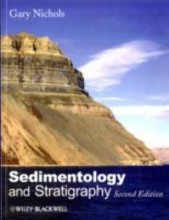Lecture GB - Prac 10: Modeling packages - tools/methodology and procedures
22 important questions on Lecture GB - Prac 10: Modeling packages - tools/methodology and procedures
Packages in the unsaturated zone
- RCH
- EVT
- ETS
- UZF
Unsat: advanced Darcy/Richards, only z-direction; soil; bc = Hgr
Packages in the saturated zone?
- WEL
- MNW1
- MNW2
- HFB
- SUB
x,y layers; Dupuit; recharge = rain
Packages in the open water?
- DRN
- SWR
- RIV
- GHB
- STR
- SFR
line St-Venant; constant drainage
- Higher grades + faster learning
- Never study anything twice
- 100% sure, 100% understanding
Name two basic facts on MODflow
- Modular flow
- Modules > packages
- Based on rectangular finite volumes
- Name the formula
- Fluxes of heads
- Integral Qi: eg fluxes of well package/recharge package
What are required packages for Modflow?
- Flow packages (internal flow)
- Solver packages: until convergence
- Forcings packages (external flow)
- Unsaturated zone flow
- Open water flow
Explain numerical complication due to the (in)activities of cells
Solution: NWT
Unsaturated zone flow packages
- Dirichlet BC
- ?
- Neumann BC:
- ? (RCH: recharge package)
- Cauchy BC
- EVT
- ETS
- Flow process package
- UZF: unsaturated zone processes (closer to Richard)
Extraction from EVT and ETS comes from rooting. The GW table changes linearly, meaning shallow roots cannot access GW anymore at a certain point (see left graph slide 14).
Unsaturated zone flow (UZF) package
- Numerical technique
- Method of characteristics (Lagrange-ish)
- Following position of a fixed moisture content
- All typical moisture contents are tracked
- ...
What is the slope (slide 25)?
What is the difference between conductivity and conductance
Conductance = K*area (typical modflow term)
What are flow packages (internal flow - saturated GW)?
UPW: Upstream Weighting
HUF: Hydrological Unit Flow
BCF: Block Centered Flow
What are solver packages?
- PCG (use of (conjugated) gradient) > misfit of calculated heads - minimal SS finder - very efficient
- NWT (no wet/dry problems)
- SIP
- SOR (your hydrogeology (spreadsheet) experience)
- GMG
LMG - DE4
What are wet/dry issues?
- Consider nodes and vertical flow
- Modflow tracks on GW head depth and saturated thickness of cell. Thus: kD > kh (because h=sat thickness which the confined aquifer/what MODFLOW effectively looks at)
- Only h thickness is thus used to calculate flux
- If GW table is below a cell, it becomes inactive
- Issue: (in)activing switch, could be a numerical nastiness (maybe related to instability)
NWT: Newton and upwinding package can circumvent this
What are 'optional' packages/top systems/BC packages (USGS)
- Not related H
- Neumann
- Related to H
- Cauchy (combi of flux & fixed head)
- Dirichlet
- Flow process packages (more advanced)
- Own water balance/budget
- Own 'flow'eq
- UZF: unsaturated zone
- STR/SFR: OW/hydraulics
- SWR: special version of modflow with emphasis on hydraulics
- LAK: lakes
What are packages for the saturated zone flow?
- Dirichlet:
- IBOUND: prescribed head at boundaries (constant during whole simulation)
- CHD1: time variant specified head package (transient!)
- Neumann:
- RCH: recharge
- WEL: well (MNW1,2)
- Cauchy:
- GHB: gen head boundary - relation to conductance icw a prescribed head
Unsat zone flow - copy slide 11 to word!!
Moisture content and fluxes are related
Pressure heads
Linear line: h = z if q=0
Cap rise: q>0 (negative pressure is higher)
Infiltration: q<0 (pressures less)
Unsaturated zone: very non-linear
Pressure head and moisture content are related to K.
Packages in unsaturated zone flow
- Dirichlet:
- ?
- Neumann:
- ? (RCH)
- Cauchy:
- EVT: evapotranspiration
- ETS: evapotrans segments package
- Flow process package
- UZF: Unsat Zone Flow (closer to Richards)
Open water flow (hydraulics): introduction/basics
- St Venant eqs
- Simplify: gradual flow, use of kinematic wave approximation
- Weirs/constructs in rivers
- St Venant can be simplified to
- STR: Manning equation: only bed slope considered
- SFR: Backwater
Which packages are used in open water flow?
- Cauchy:
- GHB
- DRN (+DRT)
- RIV: river
- Flow process package
- STR: stream
- SFR: Stream Flow Routing
- SWR: Surface Water Routing
GHB: generalizes to a Cauchy BC
- It is a Cauchy BC
- Use as BC
- Use as domain
- OW(GHB) or unsat zone(EVP)
Graph:
- x: haq
- y: flux rates
- slope = constant
- Check graph!
What does the angle of the slope mean?
Tells you smt about resistance/hydraulic conductivity(k).
If the slope is steeper: small change in head will cause a small change in losing/gaining flux.
If the slope is less steep, the change in losing/gaining flux is large.
How does the DRN (drain) package in open water flow -Cauchy work?
- Version of GHB
- Cannot infiltrate! (GHB can)
- Thus can only drain
- Wetlands
- H > drnelev: Q>0
- H <= drnelev Q=0
Why can it not infiltrate?
- When GW lvl is below drain, it switches off
How does the RIV (river package in open water flow -Cauchy work?
- Only vertical exchange
- Rectangle river
- Low conductivity layer on bottom
- Avg GW level (calculated)
- Fixed river water lvl
k = hydraulic conductivity
Conductance = upscaled k that also considers length, width and thickness of river
Qriv = LWk*(Hriv-Haqf)/b
Conductance = LWk/b
Qriv = Cond(Hriv-Haqf)
The question on the page originate from the summary of the following study material:
- A unique study and practice tool
- Never study anything twice again
- Get the grades you hope for
- 100% sure, 100% understanding






























